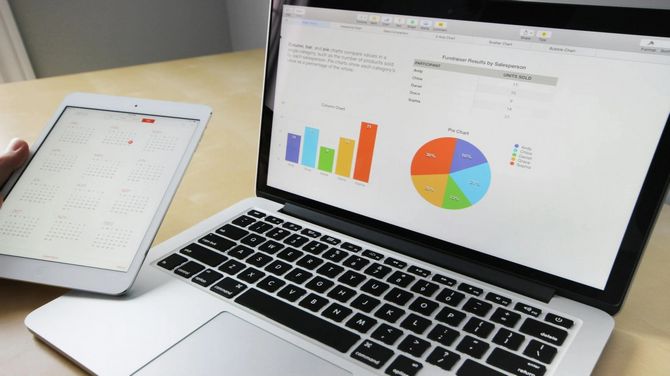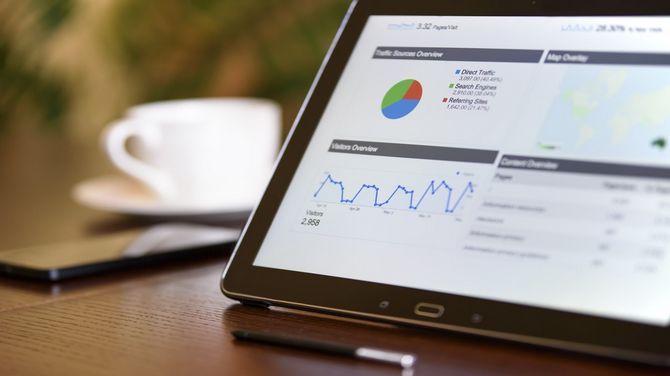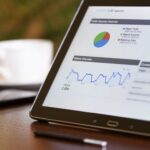These days businesses are constantly looking for ways to stand out and connect with their audience. With so many brands competing for attention, how do you ensure your marketing efforts are effective? The answer lies in data analytics.
Data analytics has become a game-changer for digital marketing. It helps businesses understand their audience, measure campaign performance, and make smarter decisions. In this article, we’ll explore how data analytics plays a crucial role in optimizing digital marketing campaigns and how you can use it to get better results.
What is Data Analytics in Digital Marketing?
Data analytics is the process of collecting, analyzing, and interpreting data to uncover insights. In digital marketing, this means using data from various sources—like website traffic, social media engagement, email open rates, and ad performance—to understand what’s working and what’s not.
Think of it as a roadmap. Without data, you’re driving blindfolded. But with data analytics, you have a clear direction, helping you make informed decisions and avoid costly mistakes.
Why Data Analytics is Essential for Digital Marketing
1. Understand Your Audience Better
One of the biggest advantages of data analytics is that it helps you understand your audience on a deeper level. By analyzing data like demographics, behavior, and preferences, you can create campaigns that truly resonate with your target audience. For example, if your data shows that most of your website visitors are women aged 25-34, you can tailor your messaging and visuals to appeal to this group.
2. Measure Campaign Performance
How do you know if your marketing campaign is successful? Data analytics gives you the answers. By tracking key metrics like click-through rates, conversion rates, and return on investment (ROI), you can see what’s working and what needs improvement. For instance, if your email campaign has a low open rate, you can experiment with different subject lines or send times to improve performance.
3. Optimize Your Budget
Marketing budgets are often limited, so it’s important to spend wisely. Data analytics helps you identify which channels and strategies deliver the best results, allowing you to allocate your budget more effectively. If your data shows that Facebook ads generate more leads than Instagram ads, you can shift your focus and resources accordingly.
4. Personalize Your Marketing
Today’s consumers expect personalized experiences. Data analytics enables you to segment your audience and deliver tailored messages based on their interests, behavior, and preferences. For example, an e-commerce store can use data to recommend products based on a customer’s browsing history or past purchases.
5. Predict Future Trends
Data analytics doesn’t just tell you what’s happening now—it can also help you predict future trends. By analyzing historical data and patterns, you can anticipate changes in consumer behavior and adjust your strategies proactively.
How to Use Data Analytics to Optimize Your Campaigns

Now that you know why data analytics is important, let’s dive into how you can use it to optimize your digital marketing campaigns.
1. Set Clear Goals
Before you start analyzing data, you need to know what you’re trying to achieve. Are you looking to increase website traffic, generate more leads, or boost sales? Setting clear goals will help you focus on the metrics that matter most.
2. Collect Data from Multiple Sources
Data can come from various sources, including:
- Website analytics (e.g., Google Analytics)
- Social media platforms (e.g., Facebook Insights, Instagram Analytics)
- Email marketing tools (e.g., open rates, click-through rates)
- Ad platforms (e.g., Google Ads, Facebook Ads)
The more data you collect, the more insights you’ll gain.
3. Track Key Metrics
Focus on metrics that align with your goals. Some common metrics include:
- Traffic: How many people are visiting your website or social media pages?
- Engagement: Are people liking, commenting, and sharing your content?
- Conversions: How many people are taking the desired action (e.g., signing up, making a purchase)?
- ROI: Are your campaigns generating a positive return on investment?
4. Use Tools to Analyze Data
There are many tools available to help you analyze data, such as:
- Google Analytics: For tracking website performance.
- HubSpot: For managing and analyzing marketing campaigns.
- Tableau: For visualizing data in easy-to-understand charts and graphs.
- Social Media Insights: Built-in analytics tools on platforms like Facebook, Instagram, and LinkedIn.
These tools make it easier to interpret data and uncover actionable insights.
5. Test and Experiment
Data analytics allows you to run experiments and see what works best. For example, you can conduct A/B tests to compare different versions of an ad, email, or landing page. By analyzing the results, you can identify the most effective approach.
6. Monitor and Adjust
Digital marketing is not a “set it and forget it” process. Continuously monitor your campaigns and use data to make adjustments. If something isn’t working, don’t be afraid to pivot and try something new.
Real-Life Examples of Data Analytics in Action
1. Netflix
Netflix uses data analytics to personalize recommendations for its users. By analyzing viewing habits, they can suggest shows and movies that match individual preferences, keeping users engaged and subscribed.
2. Amazon
Amazon uses data to optimize its marketing campaigns and improve the customer experience. For example, they analyze browsing and purchase history to recommend products and send targeted emails.
3. Coca-Cola
Coca-Cola uses data analytics to track the performance of its social media campaigns. By analyzing engagement metrics, they can create content that resonates with their audience and drives brand loyalty.
Challenges of Using Data Analytics
While data analytics offers many benefits, it’s not without its challenges. Some common issues include:
- Data Overload: With so much data available, it can be overwhelming to know what to focus on.
- Data Accuracy: Inaccurate or incomplete data can lead to poor decisions.
- Privacy Concerns: Collecting and using customer data comes with ethical and legal responsibilities.
To overcome these challenges, it’s important to have a clear strategy, use reliable tools, and prioritize data privacy.
Final Thoughts:
Data analytics is no longer optional—it’s a necessity for any business that wants to succeed in digital marketing. By leveraging data, you can understand your audience, measure campaign performance, and make smarter decisions that drive results.
Whether you’re a small business or a large corporation, data analytics can help you optimize your marketing efforts and stay ahead of the competition. So, start collecting data, analyze it, and use the insights to take your campaigns to the next level.
Remember, the key to success is not just having data—it’s knowing how to use it effectively.






